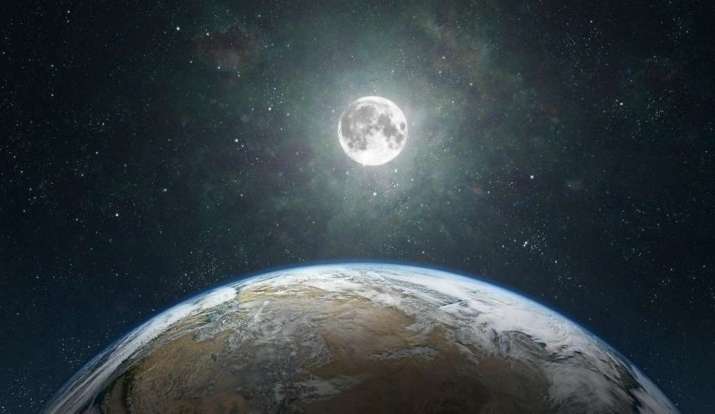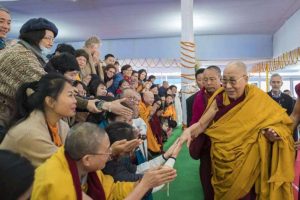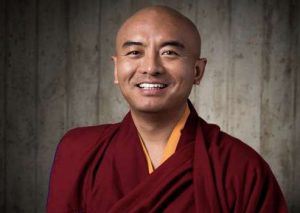
The main theme of the Sutra of the Merit and Virtue of the Past Vows of Medicine Master Vaidurya Light Tathagata (or Medicine Master Buddha Sutra) is about the 12 causal vows made by Medicine Master Buddha. All these vows are related to health, joy, peace, and other benefits in the present life.
However, there is also a short text about rebirth in the Pure Land. How is it related to Medicine Master Buddha, who made no vow concerning rebirth in the Pure Land? Without reading the text carefully, many Buddhists mistakenly believe that one can attain rebirth in Medicine Master Buddha’s Pure Land by reciting Medicine Master Buddha’s name, just like Amitabha Buddha’s Pure Land teaching.
Let’s look at the original text translated by the Buddhist Text Translation Society, as follows:
Moreover, Manjushri, there may be those among the fourfold assembly of bhikshus, bhikshunis, upasakas and upasikas, as well as other good men and women of pure faith, who accept and uphold the eight precepts either for one year or for three months, practicing and studying them.
With these good roots, they may vow to be reborn in the Western Land of Ultimate Bliss where the Buddha of Limitless Life [i.e. Amitayus or Amitabha] dwells. Upon hearing the Proper Dharma, they have not attained assured rebirth. [in lieu of “to hear the Proper Dharma, but their resolve may not be firm.”]
However, if they hear the name of the World Honored One, Medicine Master Vaidurya Light Tathagata, then as the end of their lives draws near, before them will appear eight great Bodhisattvas, whose names are: Manjushri Bodhisattva, The Bodhisattva Who Observes the Sounds of the World, Great Strength Bodhisattva, Inexhaustible Intention Bodhisattva, Jeweled Udumbara Flower Bodhisattva, Medicine King Bodhisattva, Medicine Superior Bodhisattva, and Maitreya Bodhisattva.
Those eight great Bodhisattvas will appear in space to show them the way, and they will naturally be reborn by transformation in that land, amid precious flowers of a myriad colors.
Three scenarios for rebirth in Amitabha’s Pure Land mentioned in the text
First of all, it is important to note that the sutra talks about rebirth in Amitabha’s Land of Bliss all the way through, and not in any other pure land, such as the Vaidurya Light Pure Land of Medicine Master Buddha. However, how is Medicine Master Buddha’s name related to rebirth in Amitabha Buddha’s Land of Bliss?
Actually, there are three methods or practices for rebirth in Amitabha’s Pure Land mentioned in the text:
1. Dedication of merit attained through the “self-powered” practices of the Three Meritorious Deeds, including holding the precepts (with recourse to Amitabha’s power, as per the 19th Vow).
2. Dedication of merit attained through the “other-powered” practices of name-recitation of Medicine Master Buddha’s name.
3. Exclusive recitation of Amitabha Buddha’s Name in accord with Amitabha’s Fundamental Vow (explicitly expressed as the “Proper Dharma” in the text above). No dedication is required in this scenario, as aspirants’ rebirth is assured by Amitabha Buddha as per the 18th Vow.
In the first scenario, for rebirth in Amitabha’s Land of Bliss, aspirants take the “self-powered” practice of the Three Meritorious Deeds as the “main/proper cause” and upholding the precepts as the “main/proper practice.” Thus, Amitabha’s 19th Vow is invoked, so Amitabha Buddha promises to appear as the end of aspirants’ lives draws near. It means their rebirth is not yet assured in this present life.
Moreover, even if they succeed in sustaining their merit-dedication and attain assured rebirth near the end of their lives, they will be reborn in Amitabha’s Land of Bliss by “womb”—meaning they will stay inside the lotus bud for a period of “time.” Their lotus will not blossom until they clear the offence of doubting the Buddha’s wisdom (the inconceivable power of merit and virtue contained in Amitabha’s Name), as stated in the Infinite Life Sutra and Contemplation Sutra.
Jumping to the third scenario: upon hearing of the Proper Dharma of Amitabha’s teaching of deliverance, if aspirants set forth the “other-powered” Three States of Mind as the Proper Cause, and take exclusive name-recitation (“Namo Amitabha Buddha”) as the Proper Practice, they will attain Amitabha’s real and splendid merits and virtues.
They also attain assured rebirth instantly in the present lifetime, as taught in Master Shandao’s Commentary on the Contemplation Sutra. In this way, such aspirants are in accord with Amitabha’s 18th Vow!
Moreover, they are reborn by manifestation—that is, their lotus blossom is fully opened as soon as they arrive at Amitabha’s Land of Bliss, because they have no doubt about the Buddha’s wisdom and thus have attained the real and splendid merit and virtue for rebirth in Amitabha’s real reward land.
A “grey area” in switching from reliance on “self-powered” to reliance on “other-powered” practices for rebirth
However, there is a “grey area” in between the first and the third scenarios. What happens if aspirants recite the names of Buddhas other than Amitabha for rebirth in Amitabha’s Land of Bliss? Neither Amitabha’s 18th Vow nor the 19th Vow is invoked, and neither vow covers such a scenario.
Aspirants attain real and splendid merit through the “other-powered” practice of reciting Medicine Master Buddha’s name, so they rely on the Buddha’s power for rebirth. They have no doubt about the Buddha’s wisdom, so they are supposed to be reborn in Amitabha’s real reward land by manifestation with the lotus blossom fully open. In other words, they don’t need to stay inside the lotus bud for a period of time upon arrival of the Land of Bliss.
The question is: as these aspirants do not recite Amitabha’s name for rebirth, they cannot attain rebirth assured by Amitabha’s 18th Vow in the present lifetime. Under this circumstance, Shakyamuni Buddha advises those reciters of Medicine Master Buddha’s name who aspire to be reborn in Amitabha’s Pure Land, to dedicate the merit of their practice towards rebirth in Amitabha’s Pure Land until the end of their lives.
Shakyamuni Buddha also promises to despatch eight great bodhisattvas to appear as the end of the aspirants’ lives draws near, and show them the “way” to be reborn in Amitabha’s Land of Bliss. What is the “way?” Again, it is the Proper Dharma, outlined above in scenario No.3.
To conclude, although Shakyamuni Buddha speaks of the benefits of rebirth through merit-dedication in scenarios No.1 and No.2, he also advises all sentient beings to utilize scenario No.3 for rebirth in Amitabha’s Pure Land, as it is the Proper Dharma for assured rebirth. It is also the underlying wish of the Buddhas that all sentient beings attain ultimate emancipation through rebirth in Amitabha’s Land of Bliss.











